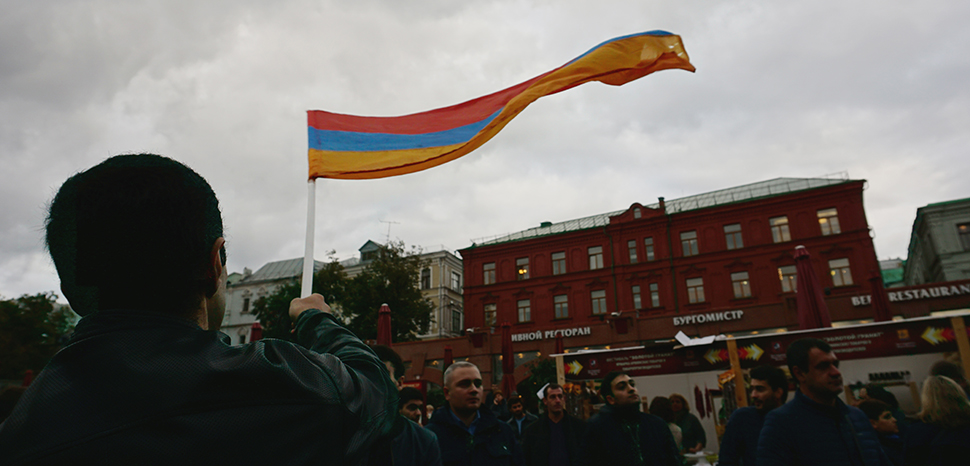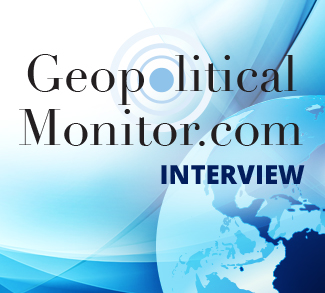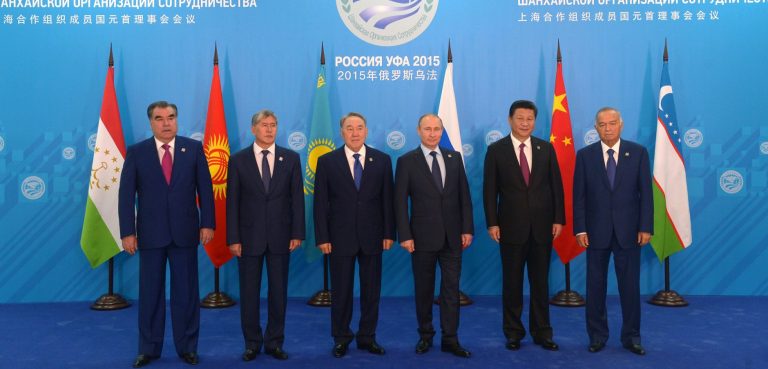Armenia needs to urgently rethink its foreign policy or the country will end up on the wrong side of history. Dependent on Russia both defensively and economically, Yerevan must understand the world is facing for a second time since 1991 the disintegration of the Russian Empire and Moscow’s loss of control over Eurasia.
For three decades, Russia has demanded the West recognize the former Soviet world as its exclusive sphere of influence. The Kremlin manufactured frozen conflicts in Azerbaijan, Moldova, and Georgia and installed its own so-called “peacekeepers,” blocking UN involvement. NATO, EU, Turkey, and China were all viewed as hostile competitors for influence in the region.
The West now has an opportunity to expand its influence into the power vacuum that is emerging in Eurasia. Russia is now viewed regionally as a declining great power mortally wounded by military failures in Ukraine. Nowhere is this more evident than in Russia pulling its troops out of its bases throughout Eurasia and Syria.
Last week, on the side lines of the UN General Assembly in New York, the GUAM group of countries – Georgia, Ukraine, Azerbaijan, Moldova – signed a protocol that enables the establishment of a free trade area, another sign of Russia’s loosening grip over Eurasia. The recent Shanghai Cooperation Organisation meeting revealed Central Asia as China’s sphere of influence, as countries almost exclusively align behind Beijing’s diplomatic positions, with Russia as junior partner. Then on Monday, the leadership in Kazakhstan – where Russia intervened earlier this year to help put down a protest movement – explicitly stated it will not recognise Moscow’s pseudo referendums to annex of parts of Eastern Ukraine.
In Eurasia, only Armenia and Belarus remain firmly within Russia’s sphere of influence. But for how long.
Self-declared Belarusian President Alexander Lukashenko has nowhere else to go. Since the 2020 fraudulent presidential elections, his fate is tied to Russian President Vladimir Putin. Russia materially backed his brutal crackdown against protests over massive election fraud. Russia’s likely militarily defeat by Ukraine will lead to regime change in Belarus and Lukashenko’s replacement by democratic opposition leader Sviatlana Tsikhanouskaya.
Armenia has greater room for maneuver. Its leader Nikol Pashinyan came to power four years ago on the back of a bona fide popular uprising. He will not lose power if Putin is removed following Russia’s military defeat. Nevertheless, Yerevan has little time left to adjust its foreign policy to the reality of the sinking Russian ship.
Armenia can send a signal it understands the writing on the wall in three ways. The first would be to announce its intention to withdraw from the Russian-led security alliance, the CSTO (Collective Security Treaty Organisation), declaring it has proven unable to provide security assistance to Armenia. In a recent breakout of hostilities with neighbor Azerbaijan, Russia rejected Armenia’s calls for assistance.
Second, it should withdraw from the Eurasian Economic Union and advise the EU it is interested in signing an Association Agreement, obtaining an DCFTA (Deep and Comprehensive Free Trade Agreement) and securing a visa free regime – three compacts Ukraine, Georgia and Moldova have all achieved. Nearly a decade ago, Russia pressured Armenia and Ukraine to drop their planned Association Agreements with the EU and instead join the Eurasian Economic Union. This was a strategic mistake undertaken by the pro-Russian regime that ruled Armenia before the 2018 democratic revolution that brought Pashinyan to power.
Third, it should declare a readiness to join the GUAM free trade zone, a step that would economically integrate the entire Southern Caucasus.
There would be three benefits to readjusting Armenia’s foreign policy from its traditional pro-Russian uni-directional to multi-vectorism. The first would be a boon to Armenia’s economy and trade, benefiting from access to the EU, the biggest customs zone in the world with which the Eurasian Economic Union cannot compete. Armenia could look at how Ukraine successfully re-oriented its economy from Russia to the EU after the 2014 crisis, boosting its trade and investment.
Second, ending pro-Russian unilateralism would encourage the peace process between Armenia and its neighbours. Moscow has no interest in seeing a settlement to the three-decade frozen dispute between Armenia and Azerbaijan. A deal would remove the need for Russian peacekeepers in the region and diminish its projection of power. Shifting foreign policy would reinvigorate the parallel EU peace process and lead to a resolution.
The third would be the modernization of Armenia’s armed forces by greater interaction with NATO and Europe. Armenia’s reliance on outdated Soviet Russian military training and armaments have not served it well.
Three decades since the disintegration of the USSR, the Russian empire is again losing its control over Eurasia. The Kremlin must compete with the EU, Turkey, and China. Unlike Belarusian dictator Lukashenka, Armenia’s democratically elected leaders are not irrevocably tied to Moscow. Now is the time for Armenia’s leaders to abandon the Russian ship and reorient its foreign policy.
Taras Kuzio, Taras Kuzio is a Research Fellow at the Henry Jackson Society, Adjunct Professor in the Department of Political Science, National University of Kyiv Mohyla Academy, and author of Russian Nationalism and the Russian-Ukrainian War.
The views expressed in this article belong to the authors alone and do not necessarily reflect those of Geopoliticalmonitor.com




